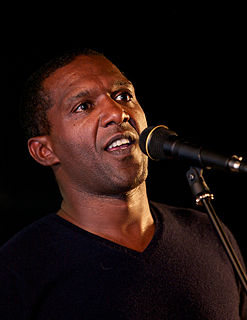A Quote by Douglas Rushkoff
Technology has moved away from sharing and toward ownership. This suits software and hardware companies just fine: They create new, bloated programs that require more disk space and processing power. We buy bigger, faster computers, which then require more complex operating systems, and so on.
Related Quotes
Complexity has and will maintain a strong fascination for many people. It is true that we live in a complex world and strive to solve inherently complex problems, which often do require complex mechanisms. However, this should not diminish our desire for elegant solutions, which convince by their clarity and effectiveness. Simple, elegant solutions are more effective, but they are harder to find than complex ones, and they require more time, which we too often believe to be unaffordable
As we build systems that are more and more complex, we make more and more subtle but very high-impact mistakes. As we use computers for more things and as we build more complex systems, this problem of unreliability and insecurity is actually getting worse, with no real sign of abating anytime soon.
I have no opposition at all to technology. I think technology is a wonderful thing that has to be used thoughtfully, and we can't just assume that every bit of new technology improvesthe quality of life; it's really in how the technology is used. What I am very disturbed about is this trend of everything happening faster and faster and faster and there being more and more general noise in the world, and less and less time for quiet reflection on who we are, and where we're going.
More and more major industries are being run on software and delivered as online services—from movies to agriculture to national defense. Many of the winners are Silicon Valley-style entrepreneurial technology companies that are invading and overturning established industry structures. Over the next 10 years, I expect many more industries to be disrupted by software, with new world-beating Silicon Valley companies doing the disruption in more cases than not.
When private industry makes a mistake, it gets corrected and goes away. As governments make mistakes, it gets bigger, bigger and bigger and they make more, more and more because as they run out of money, they just ask for more and so they get rewarded for making mistakes. In the meantime that is exactly what we are doing by subsidizing companies which are failing, we have a reverse Darwinism, we've got survival of the unfittest, the companies and people that have made terrible mistakes are being rewarded and other people are being punished and being taxed.
I do think American culture has shifted a little bit away from the contemplative more toward the visual, more toward the emotional, and more toward the expressive. I don't think there's a lot that can be done about that. We just have to understand that it's the product of technology and of the way people live now.
Russia is modernizing its nuclear systems. They're moving toward more effective tactical nuclear systems. They're moving toward delivery systems designed to evade anti-ballistic missile defenses. The Russians are investing, by the way, in robotic weapons, including a potential robotic tank. Their investment in new technology, I suspect, outweighs all of the European defense research and development spending combined.
Space has not changed but technology has, in many cases, improved dramatically. A good example is digital technology where today's cell phones are far more powerful than the computers on the Apollo Command Module and Lunar Module that we used to navigate to the moon and operate all the spacecraft control systems.






































